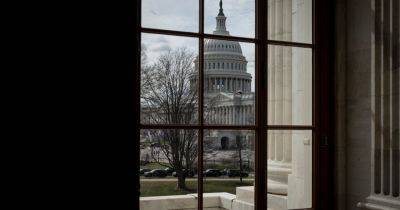Takeaways From the Supreme Court Arguments on Social Media Laws
The Supreme Court heard arguments for nearly four hours on Monday on a pair of First Amendment cases challenging laws in Florida and Texas that seek to limit the ability of internet companies to moderate content on their platforms. Here are some takeaways:
As the public square has moved online in the 21st century and technology companies like Facebook, YouTube and X have grappled with objectionable content, new dilemmas have arisen over the scope and meaning of free speech.
Florida and Texas enacted laws limiting the ability of large internet companies to curate what appears on their platforms, in part in response to what some conservatives considered censorship of right-wing views by Silicon Valley in the name of combating hate speech and misinformation. One of the most notable examples: The decisions of some platforms to bar President Donald J. Trump after he repeatedly posted on social media to falsely claim that his loss in the 2020 election was the result of fraud, leading to the Jan. 6, 2021, Capitol riot.
An association of technology companies called NetChoice sued, arguing that platforms have a right to moderate content on their sites — a practice that it said was crucial to keeping them attractive to users and advertisers. The coalition won preliminary injunctions blocking both states from enforcing the laws while broader First Amendment issues are litigated.
Both liberal and conservative justices signaled that they would prefer to have a more developed record about how the law would operate, raising the possibility that the Supreme Court could return the case to lower courts for more fact finding.
Justice Samuel A. Alito Jr., a conservative, pointed out that there were no lists of which platforms were covered by the







